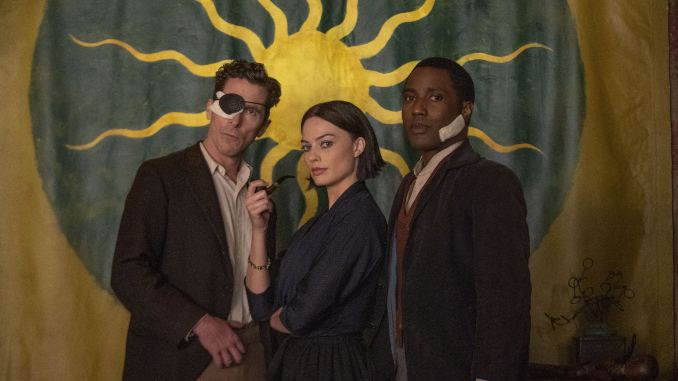A Superb Cast Cannot Salvage Amsterdam‘s Hot Mess

Amsterdam opens with a tagline that reads “A lot of this really happened,” a cutesy testimony meant to foreshadow that the film will at once relay a fascinating true story, while also cheekily muddying the line between fiction and reality. But the only thing that writer/director David O. Russell muddies is his own plot.
Amsterdam follows an unlikely trio: A one-eyed eccentric named Burt Berendsen (Christian Bale), his deadpan best friend Harold Woodsman (John David Washington) and Valerie Voze (Margot Robbie), a rollicking military nurse with an affinity for forging macabre sculptures out of bloody shrapnel. The three meet at the tail end of World War I, and instantly forge a lifelong bond.
The majority of Amsterdam takes place over a decade after the War, at which time Burt is an experimental New York City plastic surgeon, Harold is an attorney and neither has heard from Valerie in years. The film kicks into gear when Burt and Harold are framed for murder by a devious stranger, and are subsequently sent on wild-goose chase to clear their names. Like Amsterdam’s opening tagline, the goose-chase is relentlessly silly, from “nonsense songs” composed of whimsical French words, to drug-related physical humor and a literal freeze-framed, “I bet you’re wondering how I ended up here” moment.
But for most of its 132 minutes, eccentricity is the least of Amsterdam’s problems. More than anything, the film is flat-out confusing—and not in a lively Inherent Vice or Under the Silver Lake way, but rather in an aggravating what-the-hell-is-the-point-of-this? way.
A lot of this confusion is tonal. The film flip-flops between making you think it concerns some ominous, world-threatening conspiracy, and then leading you to believe it’s just another film about three amigos who just can’t stop getting themselves into trouble, gosh darnit! The switcheroo occurs at such breakneck speed that, by the halfway point, you’ll probably just want to give up and stop guessing what the film is actually about (that is, unless you’re familiar with the niche and mostly forgotten historical event in question).
When watching a mystery unfold, it’s important that the viewer is given at least a semblance of a chance to figure out what’s going on, and take a wild guess at how the whole thing might end. But in Amsterdam, Russell insists on keeping his audience in the dark for most of the film’s runtime. What’s left, then, is nothing more than a brief, vaguely satisfying “a-ha!” moment when the semi-twist ending comes mostly out of nowhere.
-

-

-

-

-

-

-

-

-

-

-

-

-

-

-

-

-

-

-

-

-

-

-

-

-

-

-

-

-

-

-

-

-

-

-

-

-

-

-

-








































